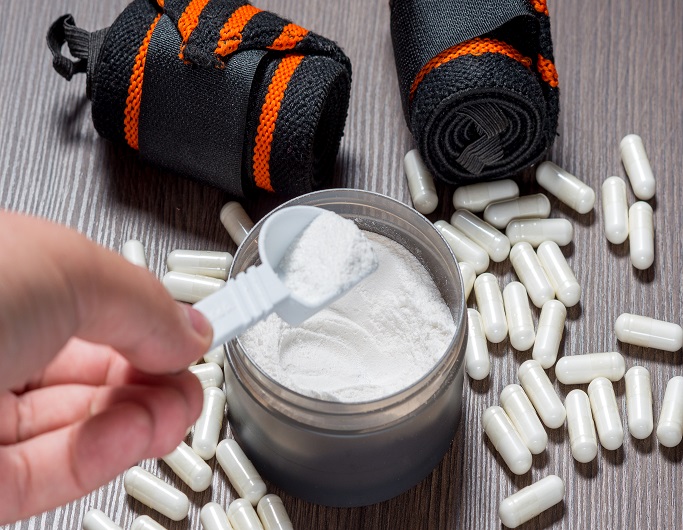
Soy Protein For Recovery
It’s well documented that consuming protein can help with muscle recovery and soy protein is no exception. Soy protein is a great alternative to whey protein for vegetarians and vegans who want the benefits of additional protein from a non-animal source. Our muscle fibres are subjected to numerous tiny tears when we exercise. This is due to the repeated eccentric contraction of the muscles or to training at an unaccustomed level. These tears are responsible for Delayed Onset Muscle Soreness (or DOMS). DOMS can be eased by assisting the repair and recovery of the muscle fibres with a protein supply. Consuming soy protein can achieve this.
How Soy Protein aids Recovery
 The building blocks of our bodies are amino acids which are contained in protein. Our bodies can produce 10 of the 20 amino acids we require but the rest need to be provided by our diet. It is these amino acids that maintain and repair our muscles. Soy protein is the closest of the vegetable proteins that most resembles the desirable amino acid profile of dairy proteins such as milk and whey. After exercise, blood flow to the muscles is increased which accelerates the delivery of amino acids. There is a window of around three hours following a workout, known as the “anabolic window” when amino acids stimulate additional muscle synthesis. The amino acids leucine, valine and isoleucine are critical to muscle recovery. These amino acids are utilised during endurance exercise to provide energy to working muscles. Leucine, in particular, plays an important role in recovery by signalling key pathways involved in muscle growth and repair.
The building blocks of our bodies are amino acids which are contained in protein. Our bodies can produce 10 of the 20 amino acids we require but the rest need to be provided by our diet. It is these amino acids that maintain and repair our muscles. Soy protein is the closest of the vegetable proteins that most resembles the desirable amino acid profile of dairy proteins such as milk and whey. After exercise, blood flow to the muscles is increased which accelerates the delivery of amino acids. There is a window of around three hours following a workout, known as the “anabolic window” when amino acids stimulate additional muscle synthesis. The amino acids leucine, valine and isoleucine are critical to muscle recovery. These amino acids are utilised during endurance exercise to provide energy to working muscles. Leucine, in particular, plays an important role in recovery by signalling key pathways involved in muscle growth and repair.
In addition to amino acids, antioxidants are increasingly considered important for athletic recovery. They oxidative stress caused by free radicals produced during exercise that may contribute to muscle damage and fatigue and impact DOMS. Soy protein contains many naturally occurring antioxidants and has been shown to increase total antioxidant status compared with whey protein. Soy protein is also the only vegetable food source to contain all of the essential amino acids, including leucine, which assist in the healthy growth and repair of muscles and boost our immune system.
How to take Soy Protein for Recovery
Soy protein can be consumed in a variety of ways. For example, soy protein can be consumed in the diet as a drink, flour, isolated soy protein, extract or milk. A liquid will be absorbed more quickly by the body than a solid so consuming soy protein as a drink is the most effective way to introduce it into the system. Drinking a soy protein shake made with a product such as SOY PROTEIN 90 Isolate 30 minutes before working out will give you greater energy, muscle recovery and growth. Research shows that failure to feed exercised muscles during the anabolic window can actually lead to muscle loss so it is important to take on extra soy protein after your workout too.
How much Soy Protein to take for Recovery
Taking 40 grams of soy protein a day for three to four weeks has been shown to enhance recovery and can lessen muscle soreness. Studies looked at levels of inflammation, stress and muscle tissue breakdown and found these were all lessened when at least 10 grams of soy protein was consumed immediately after exercising.







No Comments yet!